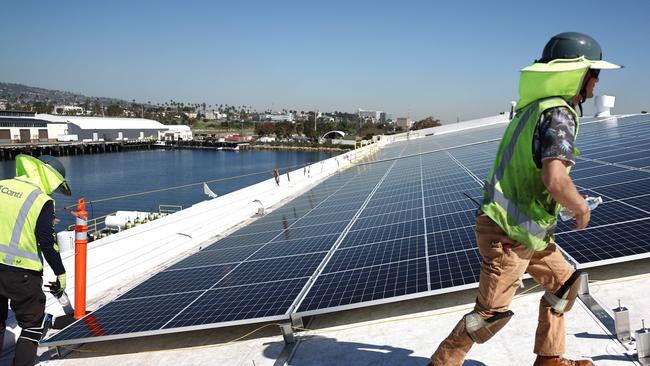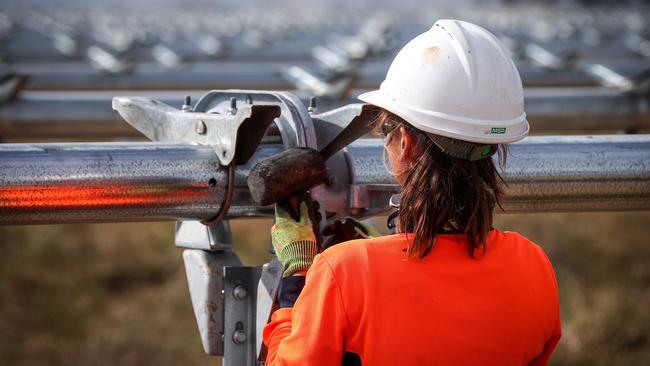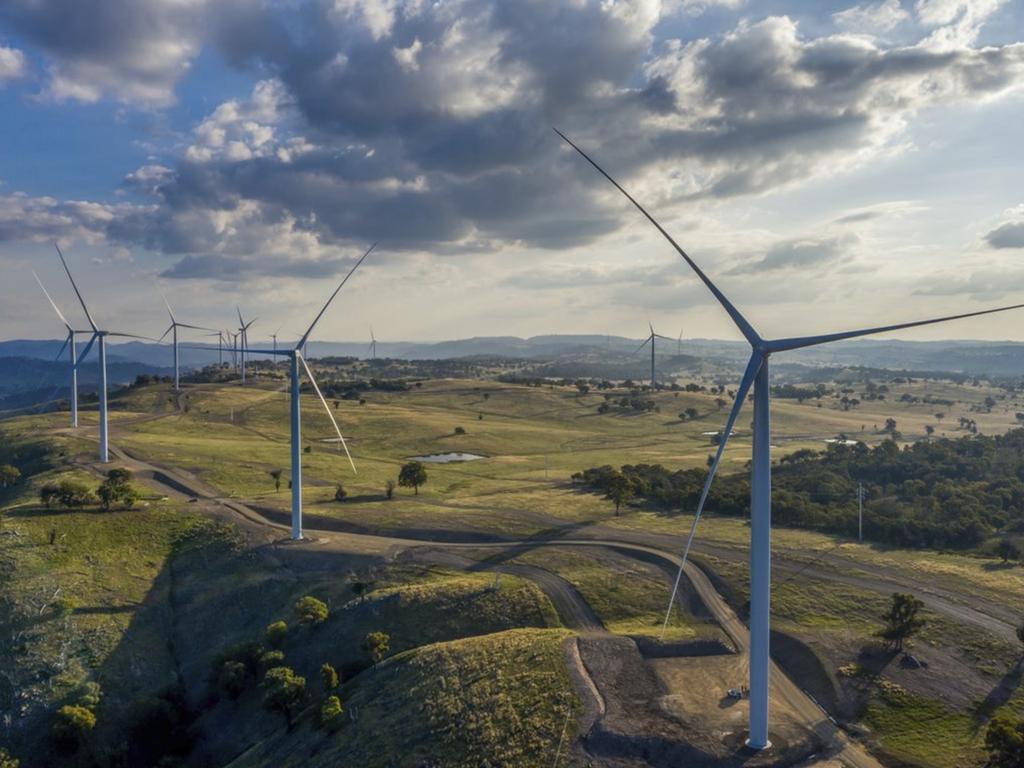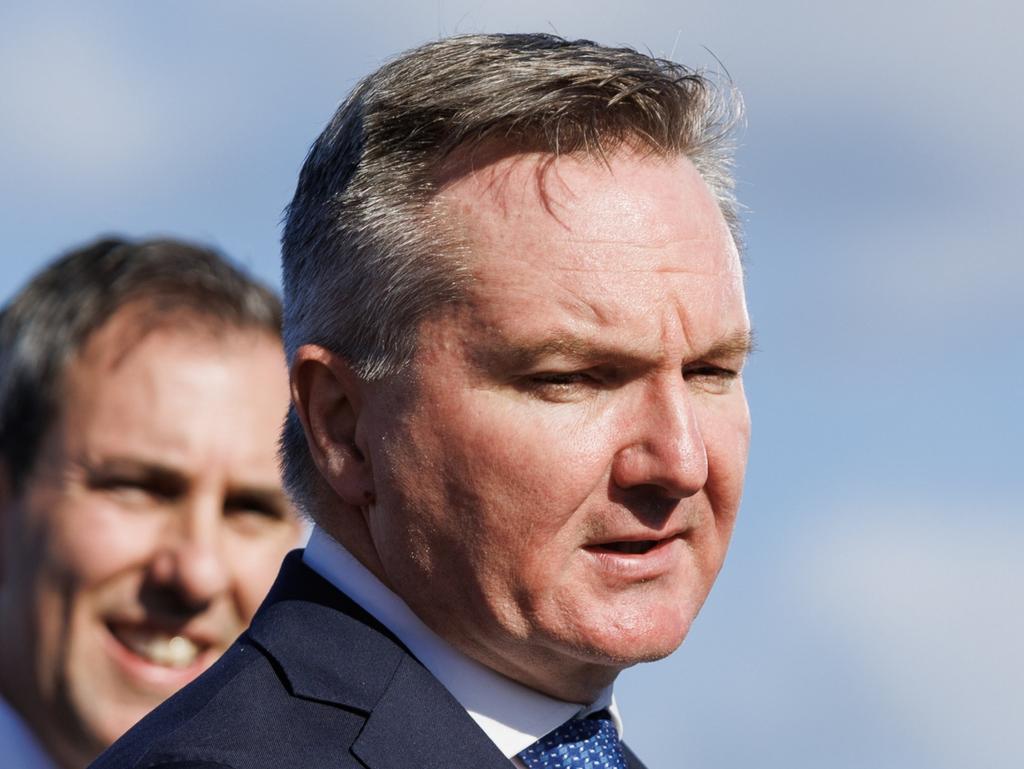Australian Energy Market Operator warns: we need electricians in rush to meet renewables goals
The warning will stoke concern about the capacity of Australia to deliver its ambitious goal of having renewable energy generate 82 per cent of the country’s power by 2030.

Business
Don't miss out on the headlines from Business. Followed categories will be added to My News.
Australia must urgently train electricians or risk failing to meet its target of having renewable energy generate 82 per cent of the country’s power by 2030, the national energy market operator has warned.
The warning will heighten the alarm about Australia’s capacity to meet transition targets and how the country will safeguard reliability and affordability without sufficient renewables projects.
To meet the aims of the transition plan – the cornerstone of the federal Labor government’s plan to curb emissions by 43 per cent by 2030 – the Australian Energy Market Operator said the country must rapidly scale up its energy workforce.
“The rapid increase in requirements for energy workers brings a high risk of skill shortages which could impact on the achievement of the (Integrated System Plan’s) optimal development path. Skill shortages create the risks of delays, increased project costs and increased cost of capital to reflect increased risk,” AEMO said.
While its report reveals how the transition away from coal faces the risk of an unprepared workforce, the forecast cements the view that it also offers sizeable economic benefits.
AEMO said the majority of the new jobs created will be in wind farms, solar farms and distributed batteries.
However, it said the scale of the economic opportunity is still not properly understood.
“The workforce required for energy efficiency, demand and energy management, and electrification will be significant, with considerable overlap with the occupations already identified in shortage for electricity supply, such as electricians and engineers,” AEMO said.
“There is a dearth of information on the scale of this workforce, with estimates for 2030 varying from 200,000 to 400,000. This information gap needs to be urgently addressed if we are to develop the energy workforce of the future.”
Still, AEMO said it expects construction-related jobs will be the most immediately desired labour type. It cautioned though that these will be very volatile. Demand for electrical engineers will rise three-fold by 2029, then drop below current levels in the late 2030s. Electricians, mechanical trades and operations managers, meanwhile, increase over the entire period as they are also required for operations and maintenance.

But the transition away from coal – still the dominant source of electricity in Australia – is likely to uproot traditional communities, especially as new renewable energy projects are located hundreds of kilometres away from where fossil fuel generation and associated industries have historically been found.
AEMO said coal jobs could be all lost by 2034 under a scenario where the country’s transition is supercharged. However, some 800 jobs in coal industries remain by 2050 should the transition take much longer than currently anticipated.
A more moderate timetable is most likely, with AEMO separately forecasting the country’s fleet of coal-power generators will have retired by 2037.
Australia is rushing to build adequate amounts of new renewable energy generation though progress has been stubbornly slow – heightening pressure on the federal Labor government.
In a bid to accelerate progress, Labor has said taxpayers will underwrite some 32GW of new wind, solar and battery projects, and there is some tentative evidence of progress.
The country’s energy industry has cautioned that progress is hamstrung by ongoing delays in developing new high-voltage transmission lines.
Pockets of rural opposition have slowed progress on the infrastructure projects, without which renewable energy developers will not advance projects until they have assurance they will be able to connect into the grid.
Several states have moved to allay opposition with ever larger offers of compensation, though some communities have vowed to reject them.
More Coverage
Originally published as Australian Energy Market Operator warns: we need electricians in rush to meet renewables goals





